Teaching “The Odyssey” with Greek Hospitality
Originally published on The Farmhouse Hostess
April 30, 2022
My English 9 class recently finished Homer’s epic poem The Odyssey. Students read Gareth Hind’s graphic novel as well as one book from the Fitzgerald translation. A lot (and I mean A LOT) happens in this epic poem, but one thing really interested me: As the epic hero Odysseus makes his tumultuous journey back to Ithaca, he attends several legendary feasts. Guests always received a warm welcome, a bomb meal, and quality entertainment.
A teacher I really admire (Lisa Hill of Colo-Nesco) does a Viking feast with her class after they read Beowulf. I just had to copy her! I reached out, and she graciously sent me a writeup of what her students have done throughout the years. I will briefly outline how I organized the process.
Step 1: Research
Each student chose an element of Ancient Greek feasts to research. They researched one of the below topics and worked for several days on a google doc. They practiced discovering quality/reliable information and citing their sources.
- Food & Beverages
- Decor
- Music
- Fashion
- Entertainment
Step 2: Plan & Execute
Once the research was completed, students met in teams to plan their contribution to the feast. I continually used the word “contribution” because I wanted everybody to bring something to the table. They had five school days to plan and work. While we did have two whole-class meetings, and I met with individual students, I was pretty hands-off. I wanted it to be STUDENT-LED. Sink or swim, baby!
Step 3: The Feast
We had our feast during my two back-to-back English 9 class periods. It was so rewarding to see some of the incredible projects my students completed. Please check out some their great work below:
The Menu

The Decor



The “Chefs”

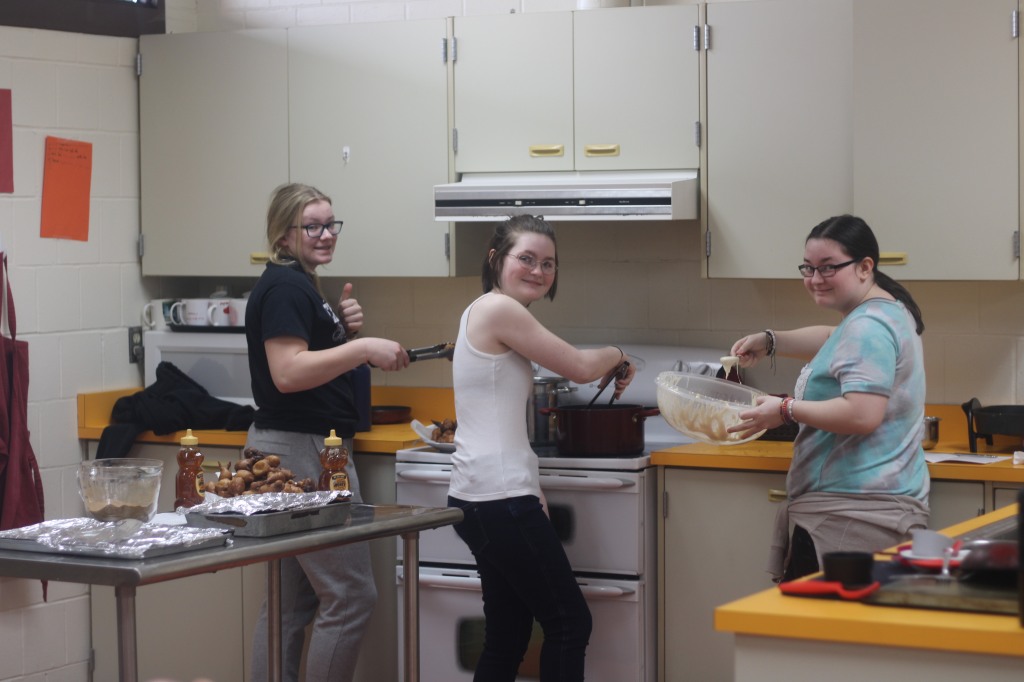
The Food






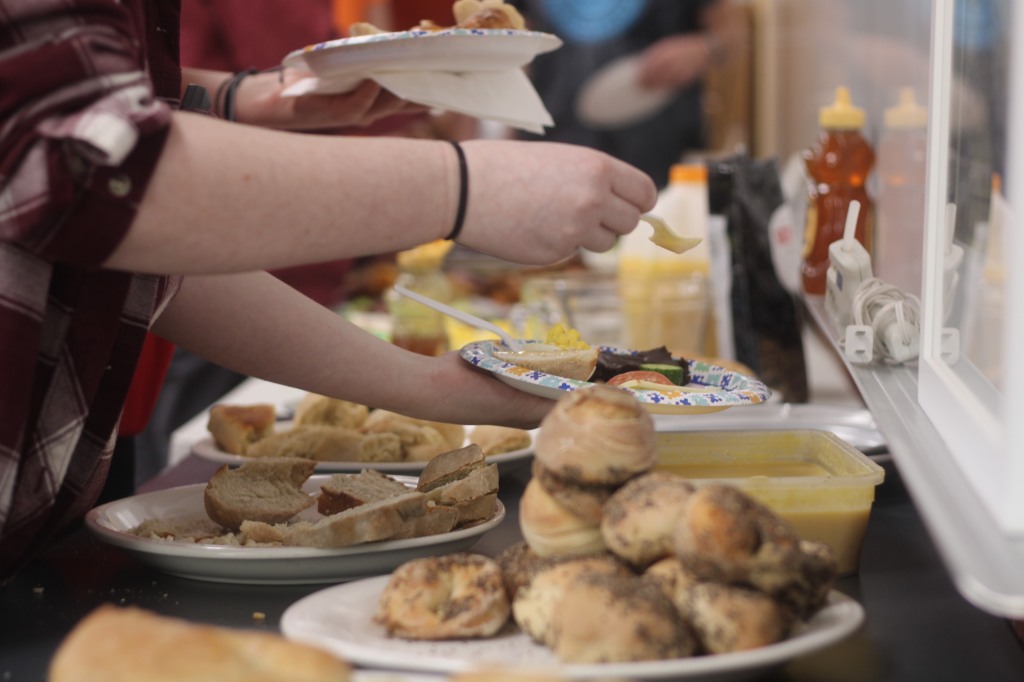
Fashion




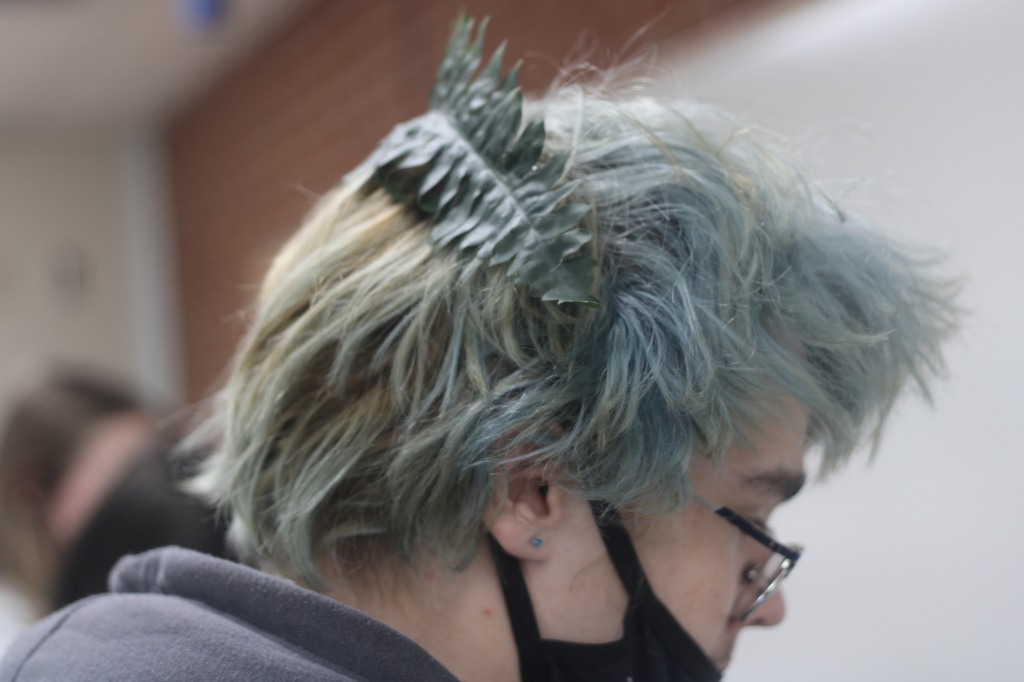


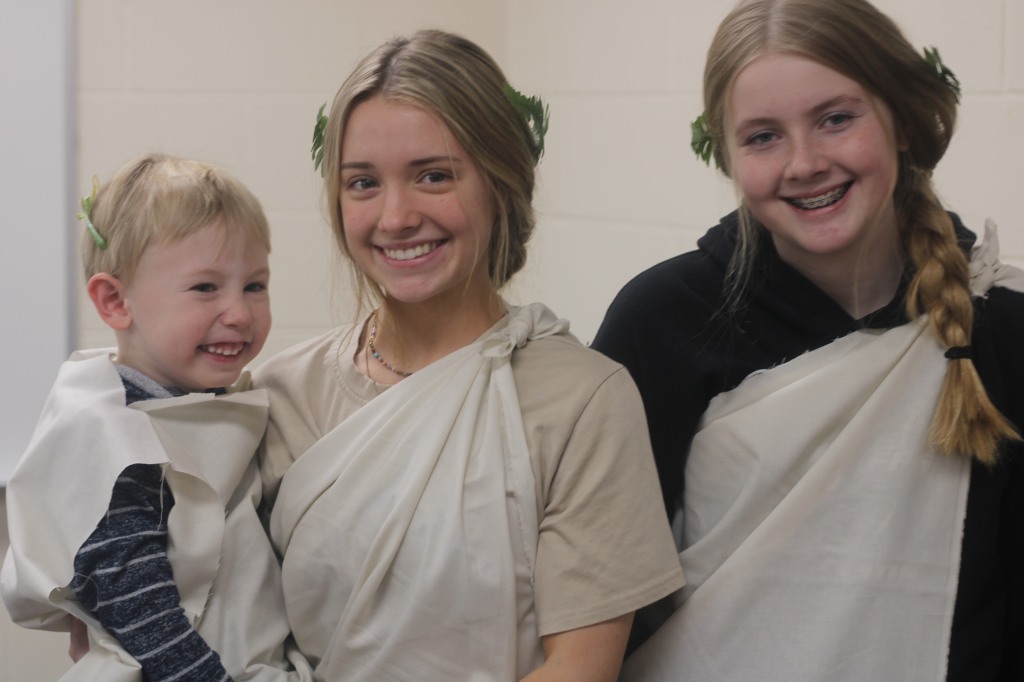
The Lyre



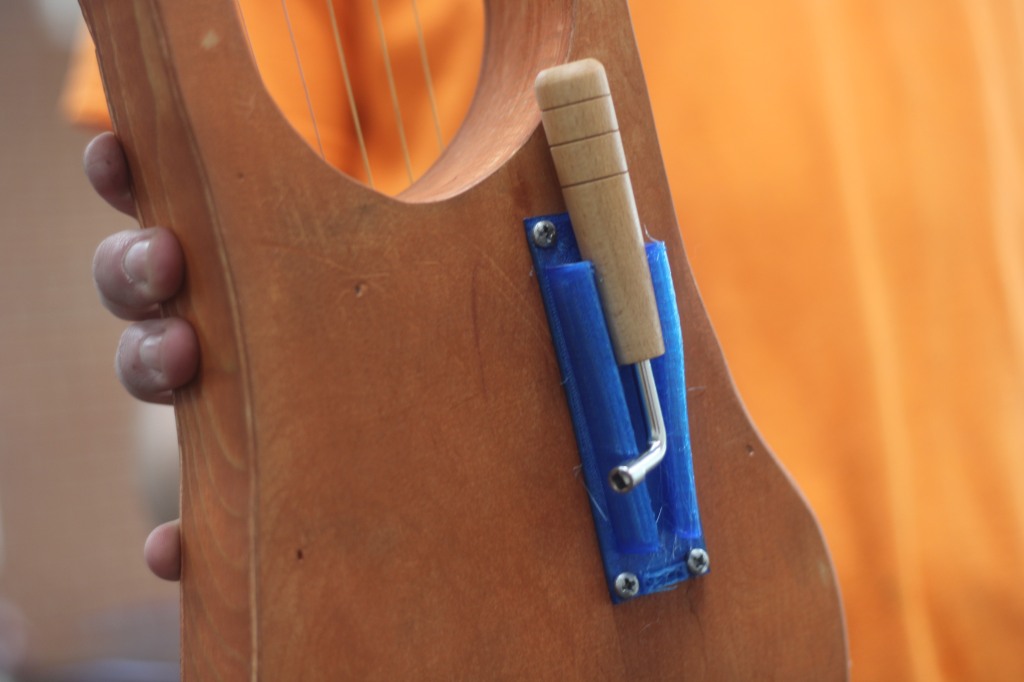

Entertainment


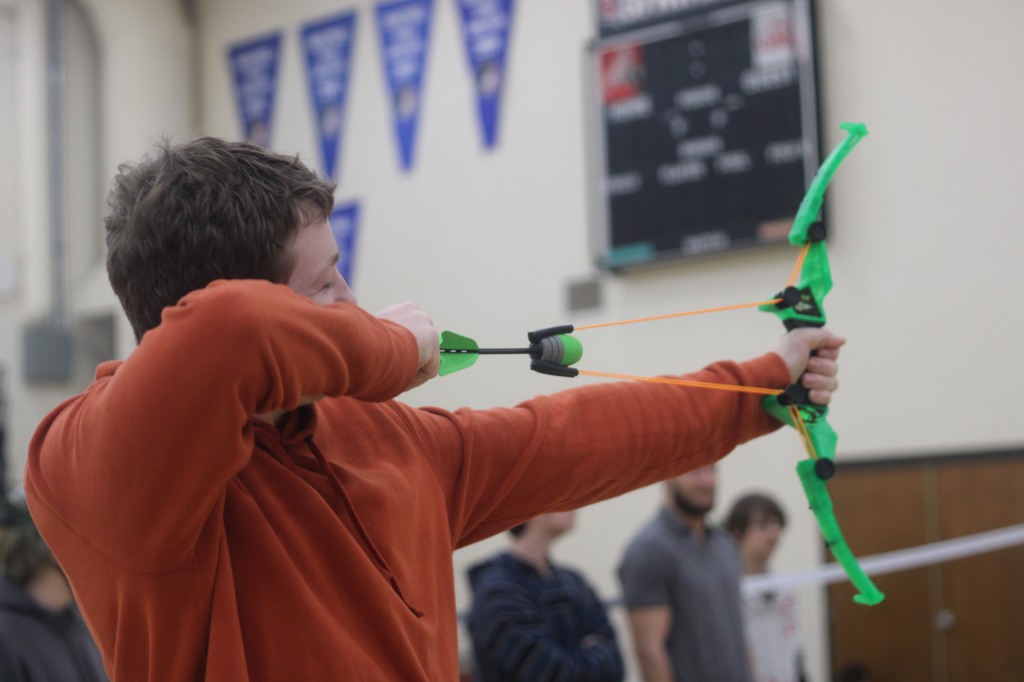
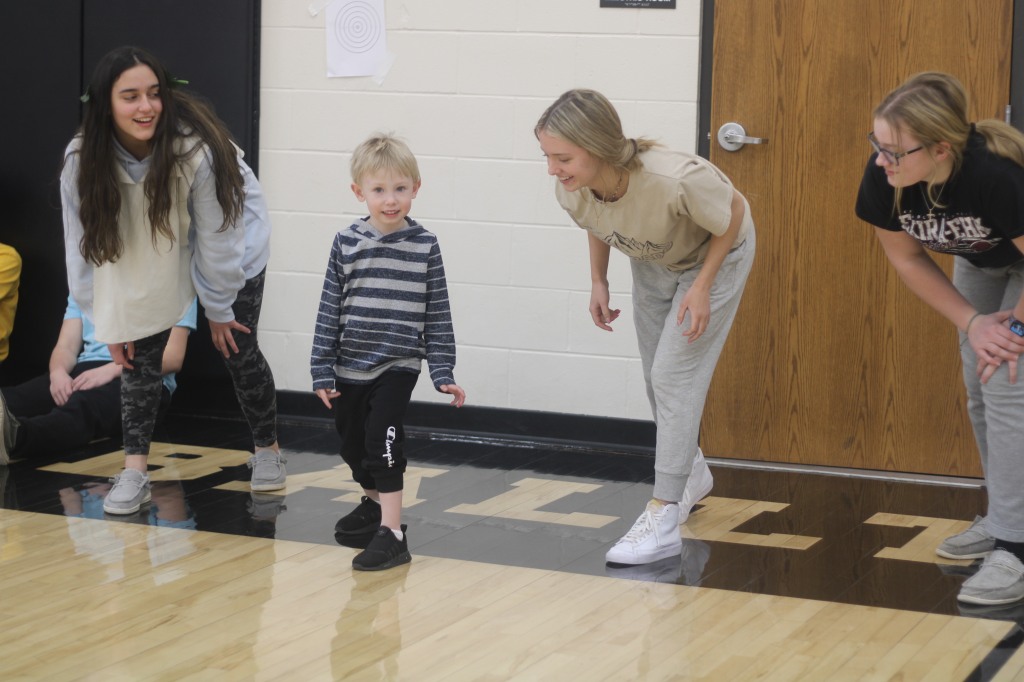
Good Times

Read more of Emma Bireline’s hosting exploits at thefarmhousehostess.com













Kim Van Es • May 7, 2022 at 8:32 am
Emma, I loved reading about these projects! So much joy. I also respect your willingness to “let go”–to trust students to make good things happen.